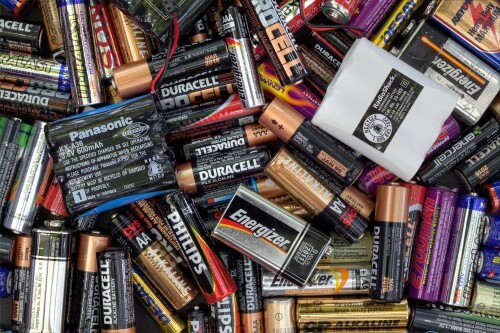Lithium-sulfur batteries are of considerable commercial interest since they may generate much higher energy capacities than those available today in lithium-ion batteries

[Translation by Dr. Nachmani Moshe]
What do you get when you wrap a thin sheet of the "wonder material" graphene around an innovative bi-functional sulfur electrode that integrates an energy storage unit together with an electrical charge transfer system? A particularly promising electrode for lithium-sulfur rechargeable batteries.
Lithium-sulfur batteries are of considerable commercial interest since they may generate much higher energy capacities than those available today in lithium-ion batteries. In a long-published paper in the scientific journal APL Materials, a team of researchers led by Dr. Vasant Kumar of the University of Cambridge and Professor Renjie Chen of the Beijing Institute of Technology describe their design for a nanoscale bifunctional sulfur cathode designed to improve performance issues such as low efficiency and capacity degradation .
Metal-organic frameworks (MOFs) have recently received a lot of attention thanks to their use in a variety of applications such as hydrogen storage, carbon dioxide capture, catalysis and the development of special membranes. In order to develop their cathode, the research team used such a chassis as a template to create an electrically conductive porous carbon cage - a cage where the sulfur is used as the host material and each of the carbon-sulfur particles is used as an energy storage unit where the electrochemical reactions take place.
"Our carbon scaffold functions as a physical barrier that encloses the active substances within the porous structure," explains one of the researchers. "This design leads to increased stability and increased performance efficiency." The researchers also discovered that wrapping the carbon-sulphur energy storage unit in a thin sheet of flexible graphene accelerates the transfer of electrons and ions, i.e. accelerates the rate of electricity flow in the structure. What is the basis of the improved capacity? According to the researchers, it is possible to create kinetic mechanisms for the rapid transfer of charges with the help of a link to a graphene network with high electrical conductivity. The researchers' work proves that a composite structure of a porous scaffold connected to electrically conductive materials can be a promising structural design for an electrode that can be used in rechargeable batteries. This work provides "a basic, yet flexible approach, both for increasing the use of sulfur and for improving the stability of batteries," notes the lead researcher. "Changing the storage unit or the chassis through the introduction of other atoms/materials (doping), or through the addition of a polymer coating, could advance the level of performance to a completely new level."
In terms of applications, the unique and innovative design of the battery, which combines energy storage and receiving a network of electrons/ions, paves the way for the development of energy storage systems based on high-performance chemical reactions, reactions that do not involve a structural or atomic change of the solid crystal structure.
![Schematic illustration of the preparation of the composite three-dimensional material [Citation: APL Mat. 2, 124109 (2014)]](https://www.hayadan.org.il/images/content3/2015/01/1.4901751.figures.online.f1-500x360.gif)

6 תגובות
Technically - aa is bigger than aa. At least in batteries.
a a A
For now, this is just an idea that has been tested under laboratory conditions. Only after they build a prototype will they be able to make capacity assessments.
In the meantime, more or less, the most sophisticated batteries are supposed to be produced with the accepted technology (lithium ion polymer) by Elon Musk. Its production is directed immediately probably as batteries for the Tesla cars it sells. (Elon Musk announced that he intends to produce lithium ion polymer batteries for any purpose and to take over this battery market as much as he can).
Technical information is lacking on the service capacity compared to stationary batteries
Technical information is lacking on the service capacity compared to stationary batteries
Okay thank you
The full article is not attached